Cauliflower is a cruciferous veggie full of fiber that is safe for dogs to eat in moderation. Adding veggies to your dog’s routine can be a great way to vary their diet and give them a nutritional boost. But too much of a good thing isn't necessarily a good thing, and eating too much cauliflower can cause digestive issues in dogs.
Here's everything to know about safely sharing cauliflower with your dog.
Is Cauliflower Safe for Dogs?
Cauliflower is safe and nontoxic to dogs and can even provide some valuable health benefits. Like all snacks and table foods, cauliflower should be shared in moderation. If your dog eats too many treats and table foods, they may not eat enough of their dog food and could be at risk for dietary imbalances and nutritional deficiencies, which could lead to illness or weight gain.
While cauliflower is safe for dogs in moderation, eating large amounts can cause digestive upset for some dogs due to the high fiber content and certain compounds in the plant. It's best to start slowly, sharing just a bite-sized piece, and see how your dog reacts before offering any more.
Nutritional Benefits of Cauliflower for Dogs
Cauliflower is a healthy snack for many reasons, including:
- Fiber: Fiber is a powerhouse and helps to prevent constipation, feed the beneficial microbes of the gut, and create feelings of satiety, or fullness.
- Low in sugar: Cauliflower has very little sugar, making it a healthy choice for dogs. While some sugar is useful as an energy source, too much sugar can lead to weight gain and related problems like diabetes and/or arthritis.
- High water content: The high water content can help dogs to feel full and may make it a good choice for dogs who are overweight and need to cut back on more calorically dense treats.
- Beneficial plant compounds: Cauliflower contains glucosinolates, which are antioxidants and antimicrobials. It also contains I3C (Indole-3-Carbinol), which may protect against certain cancers, and sulforaphane, a powerful anti-inflammatory.
- Vitamins and minerals: Cauliflower also contains potassium, B vitamins, and vitamin C.
How to Prepare Cauliflower for Dogs
Whenever you share food with your dog, it is best to start with a very small taste and see how your dog tolerates it before sharing more. Both raw and cooked cauliflower are safe for dogs.
- Raw: Raw cauliflower is much crunchier and may be more difficult for dogs with dental problems, plus it is harder to digest when uncooked. This may lead to more digestive upset for dogs that are not used to eating lots of raw vegetables.
- Cooked: Cooked cauliflower is easier to digest, however, it tends to have a sulfur-like odor which may turn some dogs off. Don't feed any cooked cauliflower with added butter, oils, or spices.
Potential Risks and Considerations
It is important to monitor your dog closely after introducing any new food and to observe for any adverse reactions such as vomiting, diarrhea, hives, or facial swelling. While rare, seek veterinary care if any of these signs develop. Other important points to keep in mind when offering your dog cauliflower include:
- Choking risk: Large pieces of cauliflower, especially when raw, can be difficult for dogs to chew up and could be a choking risk. Always give your dog a small bite-sized piece to start. If your dog is missing a lot of teeth or has any other challenges when it comes to chewing or swallowing, try cooked cauliflower first as it will be softer and easier to chew.
- Potentially dangerous ingredients: Only offer plain cauliflower that does not have oils or seasoning, or toxic ingredients such as onions, garlic or raisins. Butter and high-fat ingredients can put dogs at risk for digestive upset or pancreatitis.
- Too much fiber: While fiber is healthy for dogs, too much can cause digestive upset including bloating, gas, or diarrhea.
Other Vegetables Dogs Can Eat
Many other vegetables are considered safe for dogs. It is always important to start with a small bite-sized amount and make sure your dog tolerates the new food. Some other healthy options for dogs include:
- Carrots
- Broccoli
- Sweet potato
- Butternut squash
- Kale
- Green beans
- Cucumber



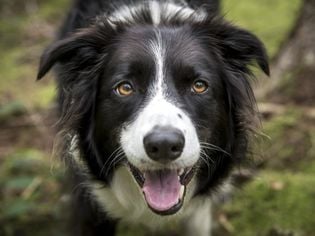

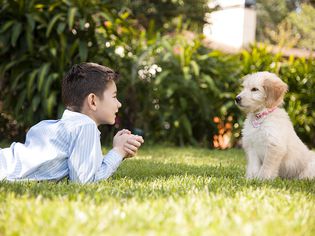

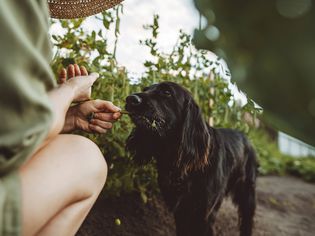
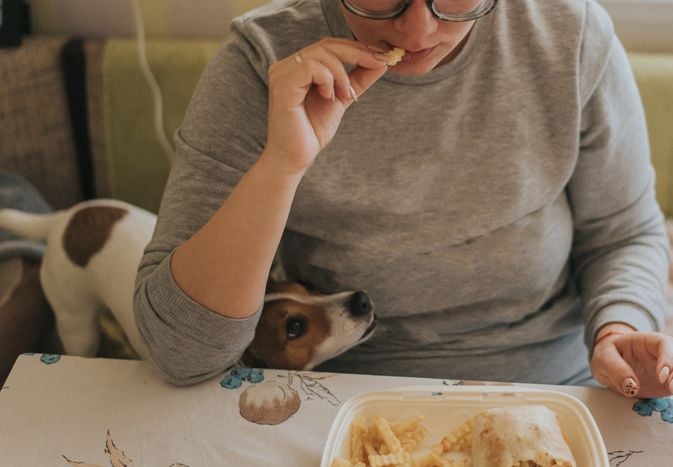
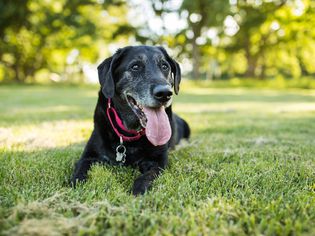
Comments on " Can Dogs Eat Cauliflower? What to Know About the Cruciferous Veggie" :